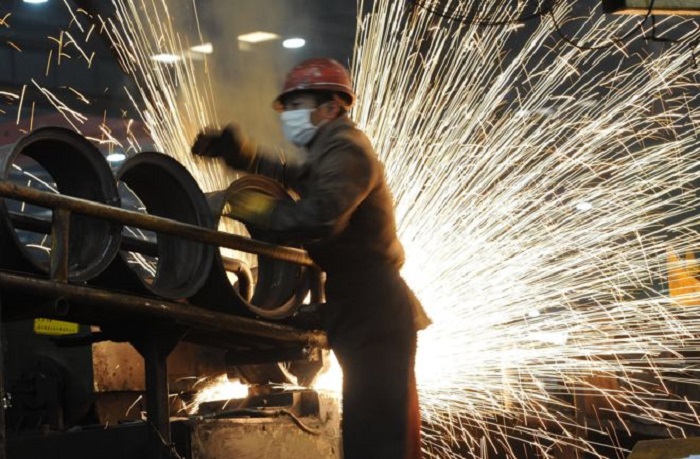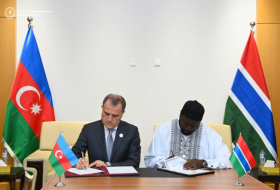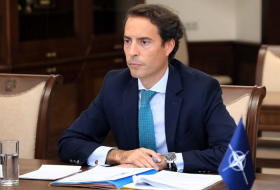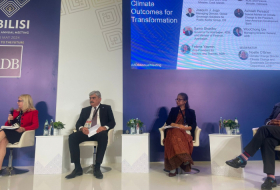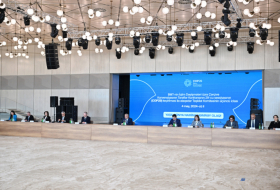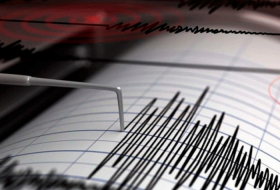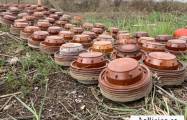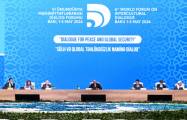The joint statement comes from the US, Canada, the EU, Japan, Mexico, South Korea, Switzerland and Turkey.
Record production in China has in the past months led to criticism that it was distorting international markets by selling steel at a loss.
The statement calls for "ongoing international dialogue" to remove "market-distorting policies" and promote greater transparency in the global industry.
On Monday, representatives from more than 30 countries met in Belgium but concluded only that overcapacity had to be dealt with in a swift and structural way.
The US explicitly pointed the finger at China, saying the country would face possible trade action if it didn`t cut overcapacity.
But China rejected suggestions that it subsidised its loss-making steel companies, and the meeting ended without any formal agreement.
Jump media playerMedia player helpOut of media player. Press enter to return or tab to continue.
Chinese steel production has expanded hugely. In the past 25 years, output has grown by a staggering 1140%. By comparison, the EU`s output fell by 12% while the US`s remained largely flat.
The drive behind that stellar increase has been China`s double-digit growth over the past decades - but the current slowdown has severely hit domestic demand.
Chinese steel is therefore sold on the international market at extremely low prices, critics say it`s sold at a loss. As a consequence, other country`s steel plants find it increasingly hard to compete.
What is China`s position?
China dismisses claims that its steel is sold at a loss and says it has done what it can to curb overproduction.
Beijing`s official news agency said that blaming the country for the global steel industry`s problems was a "lame and lazy excuse for protectionism".
In a commentary piece, Xinhua warned of protective import tariffs, saying that "blaming other countries is always an easy, sure-fire way for politicians to whip up a storm over domestic economic woes, but finger-pointing and protectionism are counter-productive."
What is China expected to do?
Very little. While other countries complain that cheaper Chinese steel is forcing their producers out of business, China is itself faced with severe problems in the industry.
The boom of past years means any substantial output cuts will lead to huge job losses, potentially leading to social instability.
It`s unlikely that China will cut output by a lot and unless domestic demand picks up, cheap exports will continue to affect global markets.
Record production
China is the world`s biggest steel producer, accounting for around 822 million tonnes a year.
On Tuesday, the country said its production hit a record high last month as rising profits had encouraged more output.
With China`s domestic market slowing, their producers have been looking for export markets, such as the EU.
This has led to accusations of unfair competition, that Chinese producers are "dumping" steel products on overseas markets - that is not just selling them cheaply, taking advantage of their lower production costs, but actually selling them at a loss.
India`s Tata steel recently announced plans to sell its loss-making UK business, citing "rapidly deteriorated" trading conditions due to global oversupply.
In 2015, the EU imposed anti-dumping duties for six months on some steel imports from China and Taiwan.
The EU and China have already clashed over the alleged dumping of products such as wine, solar panel and steel pipes.
More about:








